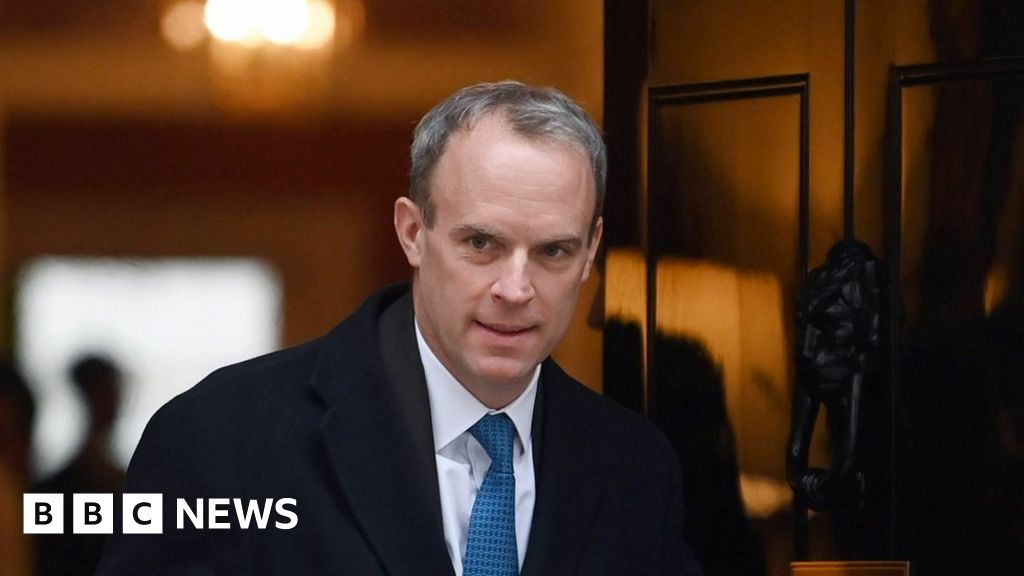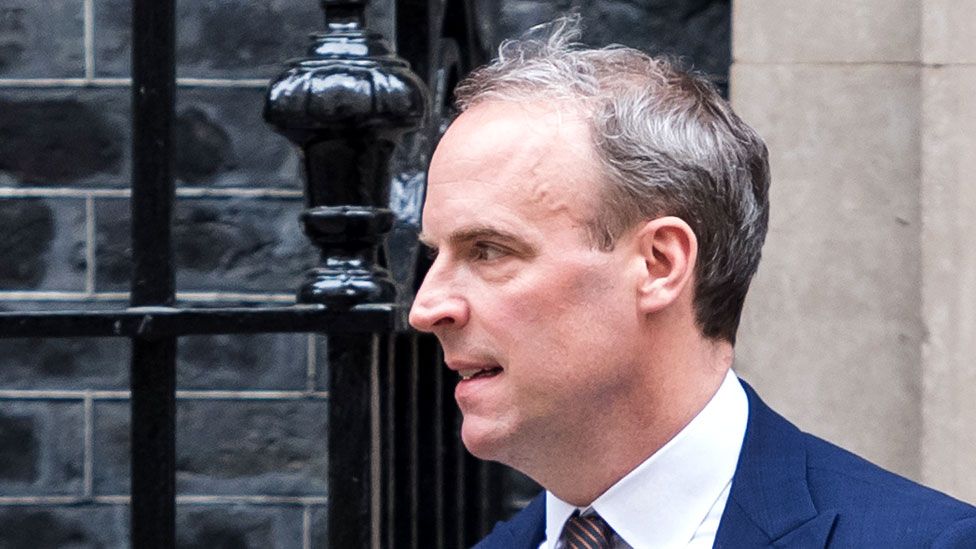This video can not be played
To play this video you need to enable JavaScript in your browser.
Former Deputy Prime Minister Dominic Raab has accused “activist civil servants” of trying to block the work of government, after his dramatic resignation over bullying claims.
An inquiry found he was “intimidating” and “aggressive” towards officials.
Mr Raab told the BBC he was sorry if he upset anyone but “that’s not bullying”.
He said there was a risk “a very small minority” of officials “with a passive aggressive culture” were trying to block reforms they did not like.
In his first interview since stepping down, Mr Raab told the BBC the only complaints upheld against him were by “a handful of very senior officials”, out of hundreds of civil servants he had dealt with.
Asked if the blunt truth was that he was a nightmare to work for, the former justice secretary said: “Well actually, almost all of the complaints against me were dismissed.”
He said a “very small minority of very activist civil servants” were effectively trying to block reforms they did not like, related to areas including Brexit, prisoner parole and human rights.
“That’s not on. That’s not democratic,” the MP for Esher and Walton added.
“If you’ve got particularly activist civil servants, who either because they’re over-unionised or just don’t agree with what we’re trying to pursue… If actually, they block reforms or changes through a rather passive aggressive approach, we can’t deliver for the British people,” he said.
Asked if there were people standing in the way of an elected government, Mr Raab said: “I was told that by one cabinet secretary, and by one director of propriety and ethics in the Cabinet Office.”
This video can not be played
To play this video you need to enable JavaScript in your browser.
However, the FDA union, which represents civil servants, accused Mr Raab of peddling “dangerous conspiracy theories that undermine the impartiality and integrity of the civil service” to “deflect from an independent investigation’s criticism of his conduct”.
The head of the union, Dave Penman, said the prime minister had a duty to defend the impartiality of the civil service and “stop giving his former ally a free hand”.
One former senior civil servant who worked closely with Mr Raab told BBC Newsnight he “has often publicly praised the work of his civil servants” and his latest comments seemed to be “at odds” with this.
Another said: “In my experience, most civil servants do their jobs because they want to deliver for the public.
“They do this through a long-standing and normally very effective relationship with the democratically elected ministers.
“I think you’d struggle to find a similar example of the disfunction we’ve heard about in Tolley’s report so it’s perhaps fair to draw the conclusion that there is one common thread to this unique situation and that’s Raab.”
The inquiry by senior lawyer Adam Tolley KC looked at eight formal complaints about Mr Raab’s behaviour during his previous stints as justice secretary, foreign secretary and Brexit secretary.
His report concluded Mr Raab’s conduct involved “an abuse or misuse of power”, and that he “acted in a manner which was intimidating” and “persistently aggressive” towards officials.
Mr Raab, a close ally of the prime minister, had pledged to resign if the investigation made any finding of bullying against him.
In his resignation letter, he said he accepted the inquiry’s findings but described them as “flawed”.
‘Dangerous precedent’
Asked in his BBC interview if he wanted to apologise, Mr Raab said: “If someone had hurt feelings, because of something I did, of course, I want an empowered team.
“The vast majority of the civil servants who worked for me were brilliant, fantastic and actually relished the energy, the challenge, the drive that I believe I brought.
“But of course, I don’t want to upset anyone and I made clear that I’m sorry for that. But that’s not bullying, and we can’t deliver for the British people if the bar is that low.”
He added: “If it’s not intentional, if it’s not personalised, if actually it is right, but there are some subjective hurt feelings by some, I’m afraid that makes it very difficult to deliver.”
Mr Raab said the findings of the inquiry set “a very dangerous precedent”.
“If the bar, the threshold for bullying is lowered that low, it’s almost impossible for ministers to deliver for the British people and I think it’ll have a chilling effect on effective government, and the British people will pay a price,” he said.
He added that a lot of ministers were now “very fearful that the direct challenge that they bring fairly, squarely in government, may leave them at risk of the same treatment that I’ve had”.
Asked if he would fight the next general election as a Conservative candidate in Esher and Walton, where he has slim majority of less than 3,000 votes, Mr Raab said he wanted to “let the dust settle” but ultimately it was a decision for his local constituency association.
Related Topics
-
-
1 hour ago
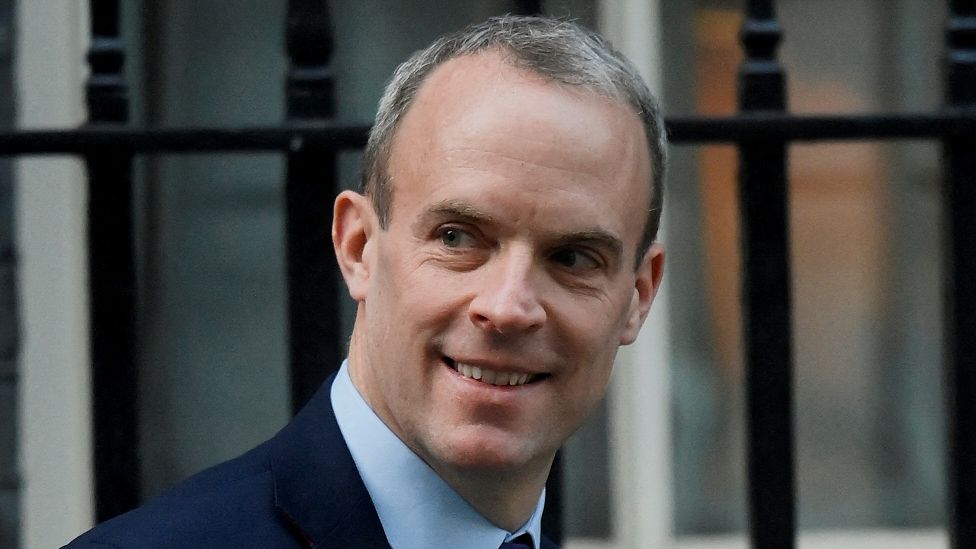
-
-
-
6 hours ago
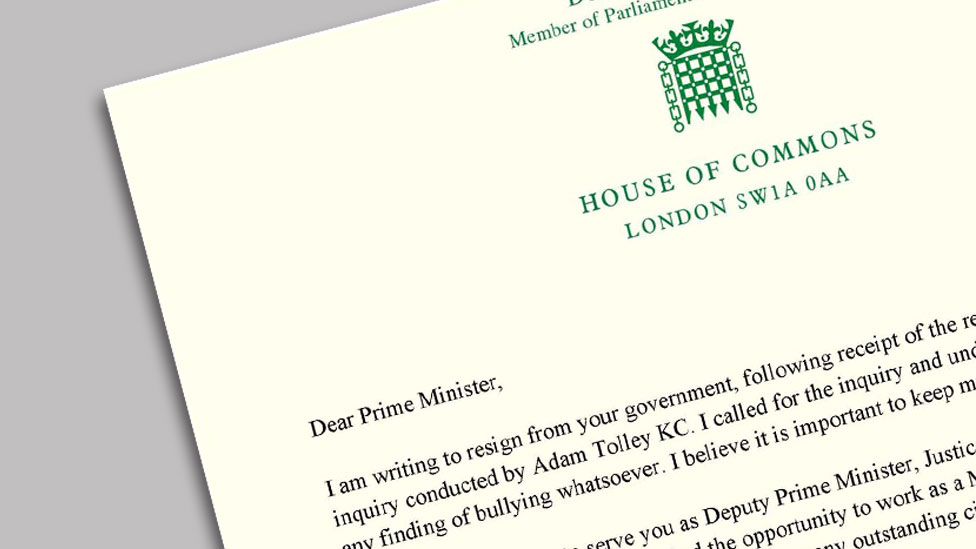
-
-
-
43 minutes ago
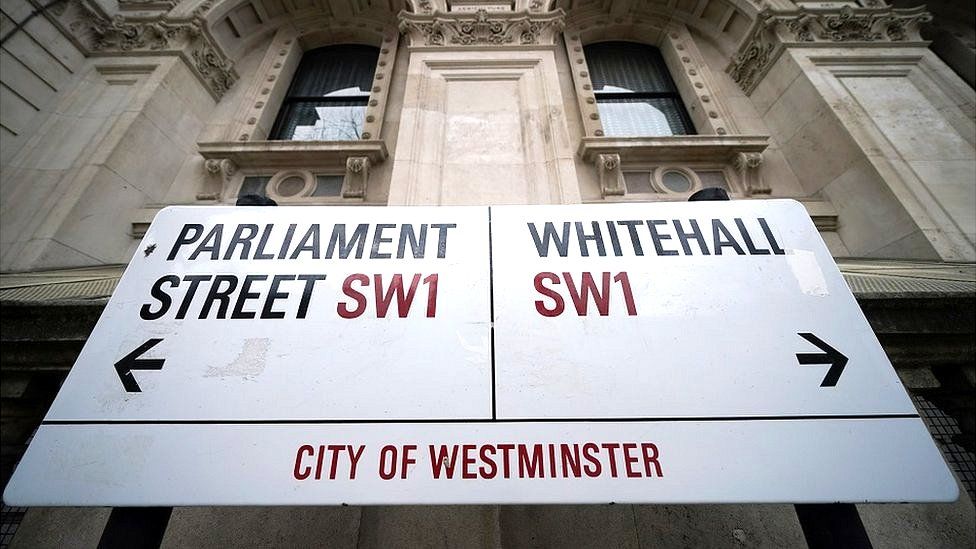
-
